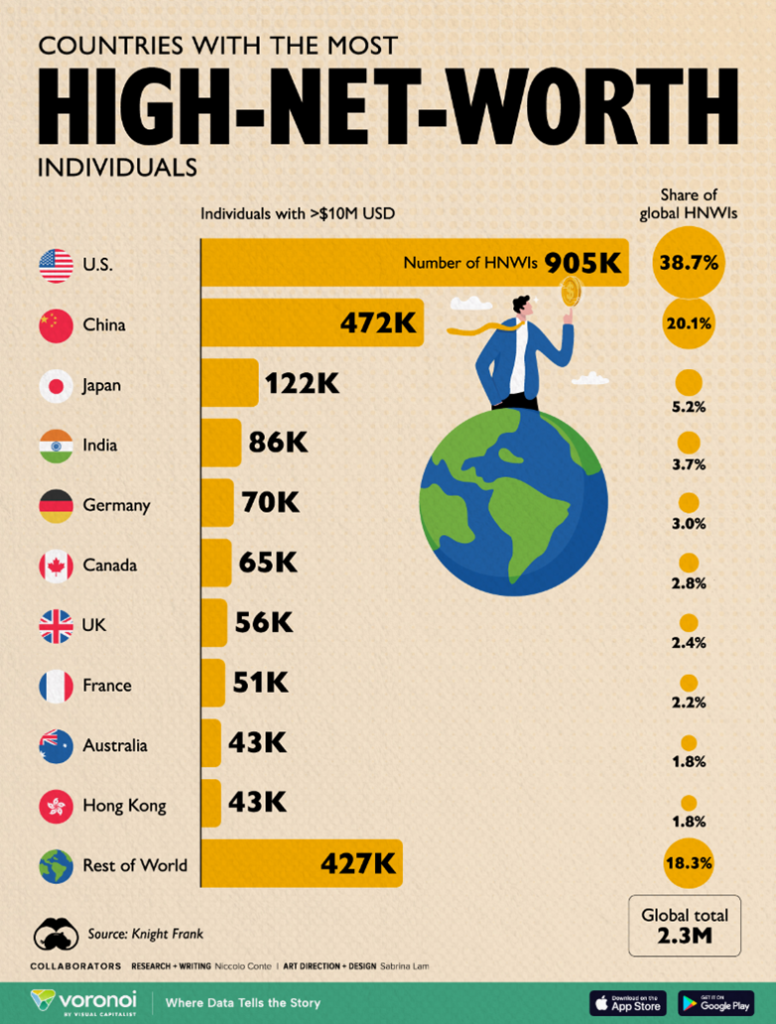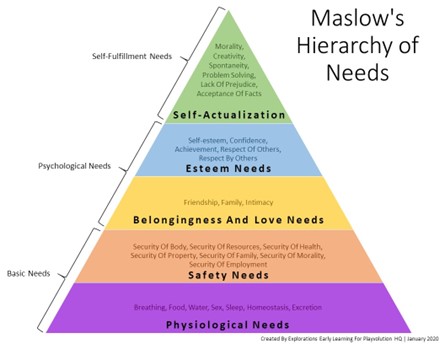Insights Blog
Why We’re Richer Than Ever, But Not Necessarily Happier
March 28th, 2025 // Adam Bruderly
“Money solves money problems.”
– Naval Ravikant
It’s a simple statement with a lot of weight. Because it’s true. Money does solve money problems.
It can pay off the credit card.
It can buy the house.
It can get you the new watch or pair of shoes.
It can create some space when it comes to financial stress.
But here’s the thing: once those problems are solved what’s next?
Maslow, Misunderstood
We often look to Maslow’s hierarchy of needs to explain human fulfillment. At the base of the pyramid? Safety. Shelter. Security. That’s where money makes a measurable impact. It stabilizes the bottom.

But the higher you climb—into belonging, esteem, and self-actualization—the currency changes. It becomes less about dollars and more about connection, identity, contribution, and purpose.
Here’s the trap: Many people confuse financial success with self-actualization. They believe the acquisition of money itself is the summit. But Maslow never said money gets you to the top. In fact, the triangle we all reference wasn’t even his—it was a consultant’s oversimplification of a much messier, more human theory. Maslow believed that our needs are fluid, interconnected, and always evolving.
Which makes this truth even more important: Solving money problems doesn’t mean you’re finished. It just means you’re now facing a different set of questions.
The View from the Top Can Be Lonely
We’ve seen it play out time and again:
- The entrepreneur who sold their company for eight figures… and quietly admitted, “I don’t know what to do with my days anymore.”
- The executive who hit every financial milestone but confessed, “It never felt like I thought it would.”
- The family that built generational wealth but never talked about values, vision, or legacy—and now finds themselves divided by what was supposed to bring them closer.
Even at the top, the questions don’t go away. If anything, they get louder. Because once money stops being the problem, you’re left with the life you’ve built—and how it feels to live it.
The Most Dangerous Promise We’ve Been Told
What makes this even harder is the false promise we’ve been sold:
“Once you make it… you’ll feel it.”
The security.
The peace.
The purpose.
But too often, that feeling doesn’t arrive. As Morgan Housel writes in The Psychology of Money: “Be nicer and less flashy. No one is impressed with your possessions as much as you are. You might think you want a fancy car or a nice watch. But what you probably want is respect and admiration. And you’re more likely to gain those things through kindness and humility than horsepower and chrome.”
We chase symbols thinking they’ll deliver substance. We accumulate, believing it will bring us peace. But what we’re really seeking isn’t what money buys—it’s how we want to feel.
The Numbers Tell the Story
Take a look at the latest data. The United States has nearly 40% of the world’s high-net-worth individuals—people with over $10 million in wealth. That’s more than China and the rest of the world combined.

But here’s the twist:
In the 2025 World Happiness Report, the U.S. ranks 23rd in global happiness.
Top 20 Happiest Countries (2025 World Happiness Report)
- Finland
- Denmark
- Iceland
- Sweden
- Netherlands
- Costa Rica
- Norway
- Israel
- Luxembourg
- Mexico
- Australia
- New Zealand
- Switzerland
- Belgium
- Ireland
- Lithuania
- Austria
- Canada
- Slovenia
- Czechia (Czech Republic)
United States – #23
So What’s Missing?
If we lead the world in wealth, why don’t we lead in well-being?
Maybe we’re measuring the wrong things. Maybe it’s time we stop chasing more and start asking why. The goal was never just money. The goal was freedom. Meaning. Time well spent. Relationships deeply rooted. A life that feels full. Money solves money problems. But fulfillment? That’s different work entirely. And maybe that’s the kind of wealth worth planning for.
So yes—work hard, build, and achieve. Pursue success and solve the financial pillar. Create the freedom, stability, and opportunity that wealth can offer. But don’t stop there. Make sure you know what that success truly means to you—not just in numbers, but in how your life feels day to day. Because if you don’t define it for yourself, someone else will. And if you’re still figuring that out, that’s not a weakness—it’s the beginning of deeper, more meaningful work.

Four Pillar Friday
Your weekly guide to thriving in every aspect of life—Physical, Mental, Spiritual, and Financial Wellness.

Four Pillar Friday
Your weekly guide to thriving in every aspect of life—Physical, Mental, Spiritual, and Financial Wellness.

Four Pillar Friday
Your weekly guide to thriving in every aspect of life—Physical, Mental, Spiritual, and Financial Wellness.
